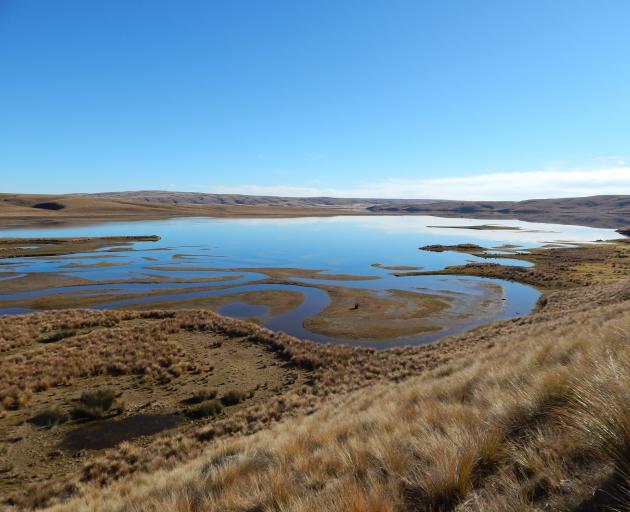Top Stories
Clutha Pumped Hydro Consortium Revives Lake Onslow Project Talks

Plans to revive the Lake Onslow pumped hydro project are under consideration, following a confidential outreach to landowners in the Teviot Valley. The letter, sent by Ken Smales on behalf of the Clutha Pumped Hydro Consortium (CPHC), seeks to gauge local interest in the initiative after the Ministry of Business, Innovation and Employment (MBIE) withdrew its involvement. While CPHC does not anticipate unanimous support, it has indicated that the absence of any backing could lead to the project’s discontinuation.
Mr. Smales, a former executive at Meridian Energy, confirmed his role with the consortium but declined to provide further details. The Lake Onslow project, first proposed by Associate Professor Earl Bardsley in 2002, has seen fluctuating levels of interest and government support over the years. In 2020, the then-Labour government initiated the NZ Battery Project, investing $30 million to explore renewable energy storage solutions, including the potential for a pumped hydro scheme at Lake Onslow.
The proposed system aims to pump water uphill during periods of low power prices, storing it for release into Lake Roxburgh when demand spikes, particularly during low water levels. However, in December 2023, the National government halted investigations into the project, which was projected to cost around $16 billion. Energy Minister Simeon Brown cited concerns over the financial burden and potential consenting issues, noting that the project would not yield benefits for at least another decade.
Should the project proceed, Beaumont Station, operated by landowners Richard and Abby Hore, would be significantly impacted. Mr. Hore expressed a willingness to consider proposals from the consortium but refrained from confirming whether he had been approached. He criticized the previous government’s handling of the investigations, stating, “People walked all over our land and drilled holes. There was nothing for us, nothing for the valley.”
The consortium’s letter highlighted that three of its four directors have held senior roles in public companies across New Zealand, all possessing extensive energy sector experience. The consortium aims to engage with landowners fairly, offering opportunities for shareholding in the venture.
Professor Bardsley maintains that the Lake Onslow project may be the only viable option left for New Zealand’s energy needs. He critiqued the reasoning behind the project’s dismissal two years prior, calling it “spin” and asserting that the scheme could benefit the southern region significantly. “I can’t see Onslow not being built given the trouble we are getting ourselves into,” he stated, emphasizing the need for reliable electricity, especially during dry years.
The project is designed to utilize renewable energy in pumping water from the Clutha River to Lake Onslow, later generating power. Professor Bardsley challenged the notion that the scheme would suppress investment in generation projects, arguing that evidence indicates continued investment during the project’s feasibility studies.
As discussions around the Lake Onslow scheme gain traction, the implications for regional energy stability and economic growth remain a focal point. The consortium’s commitment to engaging with local stakeholders could be pivotal in shaping the future of this ambitious renewable energy initiative.
-

 World3 months ago
World3 months agoTest Your Knowledge: Take the Herald’s Afternoon Quiz Today
-

 Sports3 months ago
Sports3 months agoPM Faces Backlash from Fans During Netball Trophy Ceremony
-

 Lifestyle3 months ago
Lifestyle3 months agoDunedin Designers Win Top Award at Hokonui Fashion Event
-

 Sports3 months ago
Sports3 months agoLiam Lawson Launches New Era for Racing Bulls with Strong Start
-

 Lifestyle3 months ago
Lifestyle3 months agoDisney Fan Reveals Dress Code Tips for Park Visitors
-

 World4 months ago
World4 months agoCoalition Forms to Preserve Māori Wards in Hawke’s Bay
-

 Health3 months ago
Health3 months agoWalking Faster Offers Major Health Benefits for Older Adults
-

 Politics3 months ago
Politics3 months agoScots Rally with Humor and Music to Protest Trump’s Visit
-

 Top Stories4 months ago
Top Stories4 months agoUK and India Finalize Trade Deal to Boost Economic Ties
-

 Entertainment3 months ago
Entertainment3 months agoExperience the Excitement of ‘Chief of War’ in Oʻahu
-

 World4 months ago
World4 months agoHuntly Begins Water Pipe Flushing to Resolve Brown Water Issue
-

 Science4 months ago
Science4 months agoNew Interactive Map Reveals Wairarapa Valley’s Geological Secrets









